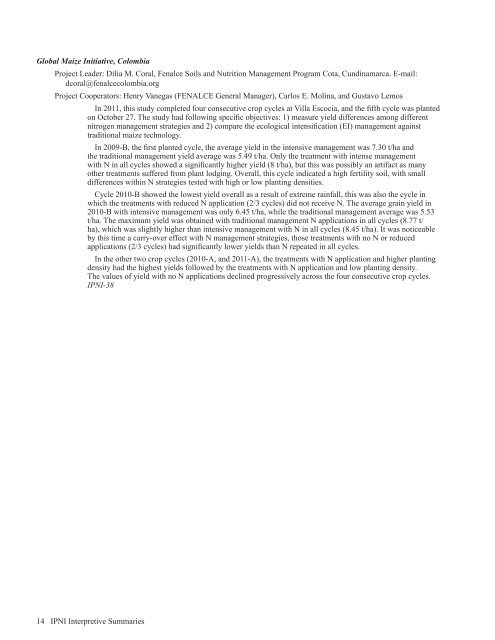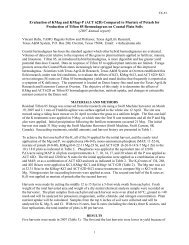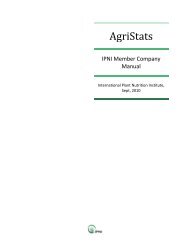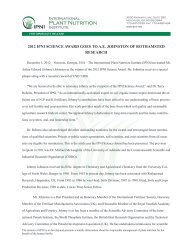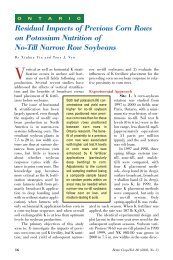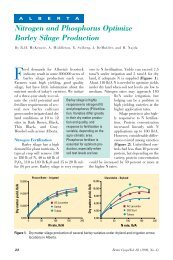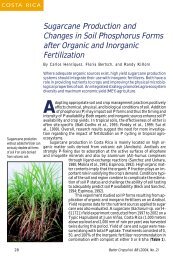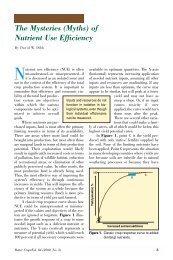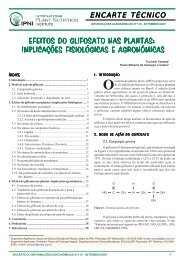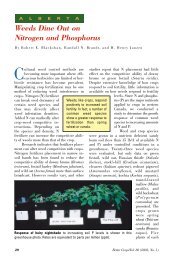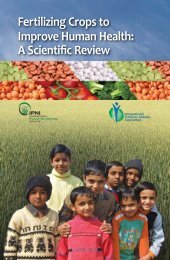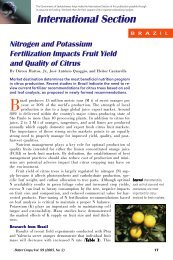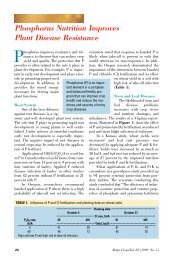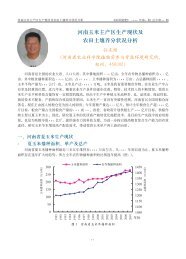Americas and Oceania Group - International Plant Nutrition Institute
Americas and Oceania Group - International Plant Nutrition Institute
Americas and Oceania Group - International Plant Nutrition Institute
You also want an ePaper? Increase the reach of your titles
YUMPU automatically turns print PDFs into web optimized ePapers that Google loves.
Global Maize Initiative, Colombia<br />
Project Leader: Dilia M. Coral, Fenalce Soils <strong>and</strong> <strong>Nutrition</strong> Management Program Cota, Cundinamarca. E-mail:<br />
dcoral@fenalcecolombia.org<br />
Project Cooperators: Henry Vanegas (FENALCE General Manager), Carlos E. Molina, <strong>and</strong> Gustavo Lemos<br />
In 2011, this study completed four consecutive crop cycles at Villa Escocia, <strong>and</strong> the fifth cycle was planted<br />
on October 27. The study had following specific objectives: 1) measure yield differences among different<br />
nitrogen management strategies <strong>and</strong> 2) compare the ecological intensification (EI) management against<br />
traditional maize technology.<br />
In 2009-B, the first planted cycle, the average yield in the intensive management was 7.30 t/ha <strong>and</strong><br />
the traditional management yield average was 5.49 t/ha. Only the treatment with intense management<br />
with N in all cycles showed a significantly higher yield (8 t/ha), but this was possibly an artifact as many<br />
other treatments suffered from plant lodging. Overall, this cycle indicated a high fertility soil, with small<br />
differences within N strategies tested with high or low planting densities.<br />
Cycle 2010-B showed the lowest yield overall as a result of extreme rainfall, this was also the cycle in<br />
which the treatments with reduced N application (2/3 cycles) did not receive N. The average grain yield in<br />
2010-B with intensive management was only 6.45 t/ha, while the traditional management average was 5.53<br />
t/ha. The maximum yield was obtained with traditional management N applications in all cycles (8.77 t/<br />
ha), which was slightly higher than intensive management with N in all cycles (8.45 t/ha). It was noticeable<br />
by this time a carry-over effect with N management strategies, those treatments with no N or reduced<br />
applications (2/3 cycles) had significantly lower yields than N repeated in all cycles.<br />
In the other two crop cycles (2010-A, <strong>and</strong> 2011-A), the treatments with N application <strong>and</strong> higher planting<br />
density had the highest yields followed by the treatments with N application <strong>and</strong> low planting density.<br />
The values of yield with no N applications declined progressively across the four consecutive crop cycles.<br />
IPNI-38<br />
14 IPNI Interpretive Summaries


